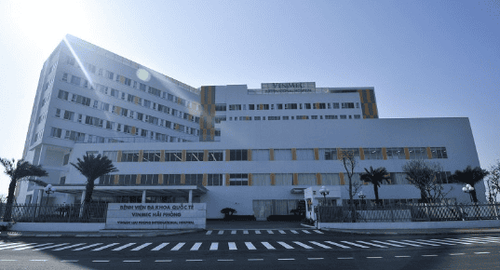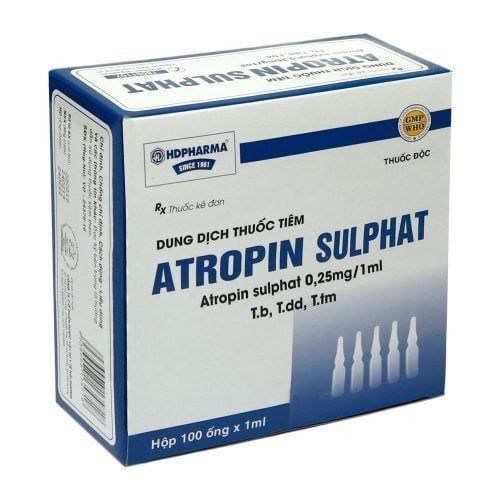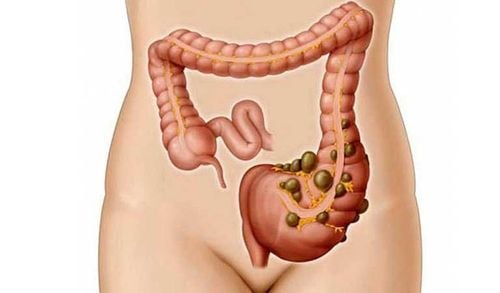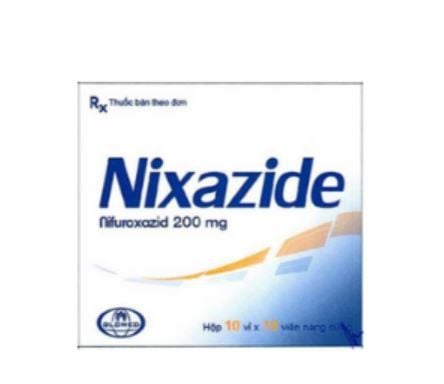This is an automatically translated article.
This article was professionally consulted by Doctor Vu Van Quan, Department of General Surgery and Anesthesia, Vinmec Hai Phong International General Hospital.A diverticulum is a bulge of a round mass in the colon. It occurs when the inner lining of the colon weakens and forms one or more pouches. When these pouches become inflamed or infected, it is called diverticulitis.
1. Prevalence of colonic diverticulitis
Diverticulents, which can range from pea-sized to much larger, are formed by increased pressure on weak points in the bowel wall by gas, waste, or fluid. Diverticulosis can form when straining during bowel movements, such as constipation. They are most common in the lower part of the large intestine (called the sigmoid colon). Most people will have no or few symptoms from a diverticulum. One of these complications is rectal bleeding, known as diverticulitis, and another is an infection of the diverticulum, known as diverticulitis.
Diverticulitis is very common and occurs in 10% of people over 40 years old and 50% of people over 60 years old, and if it is 80 years old, this rate goes up to 65%. Recent studies show that the incidence of colonic diverticulum in obese young adults is increasing.
2. What are signs of diverticulitis?
Diverticulitis can cause mild to severe symptoms. These symptoms may come on suddenly or they may develop gradually over several days.
Potential symptoms of colonic diverticulitis. Most people with diverticulosis will never experience any symptoms, only accidentally discovering them during a physical exam for other reasons. However, in some patients there may be symptoms such as:
Abdominal pain. Change bowel habits. Constipation and diarrhea may also occur, but are less common. There is a small amount of blood in the stool. Bloating. If this diverticulum becomes inflamed, the person will have the following symptoms:
Constant or severe abdominal pain. Urinate more often. Painful urination. Nausea and vomiting. Fever and chills. The patient may pass blood in the stool. Bleeding from the rectum. Abdominal pain is the most common symptom of diverticulitis, most commonly located in the lower left side of the patient's abdomen. But it can also grow to the right side of the abdomen. If you notice any of the symptoms above, such as vomiting or blood in your stools, it could be a sign of a serious complication from diverticulitis or another medical condition. medical facilities for timely examination and treatment.

3. How is diverticulitis diagnosed?
If you are experiencing symptoms of diverticulitis, it is important to see a doctor.
Your doctor will ask questions about your medical history (such as bowel habits, symptoms, diet, and current medications) and perform a physical exam, which may include a rectal exam and endoscopy. colonoscopy.
One or more diagnostic tests may be performed. Tests typically include blood tests to check for signs of infection, stool tests to check for the presence of blood in the stool or the presence of infection, and CT scans of the abdomen.
In people with rapid, heavy rectal bleeding, a doctor may perform a procedure called an angiogram to determine the source of the bleeding.
4. Treatment of diverticulitis at Vinmec Hai Phong
Most patients with diverticulosis have minimal or no symptoms and do not require specific treatment. A high-fiber diet and fiber supplements are recommended to prevent constipation and the formation of multiple diverticula.
When diverticulitis symptoms - abdominal pain, fever, ... if mild, oral antibiotics are usually sufficient. When pain is worse, a liquid diet to allow the colon and intestines to recover may also be indicated. When the pain gets worse, or when you have a high fever or you can't drink fluids, you may need to stay in the hospital, with intravenous antibiotics, and not eat or drink for several days.
Diverticulitis unresponsive to medical treatment requiring surgery. Surgery usually involves draining the pus and removing the segment of the colon that contains the diverticulum. Resection of the bleeding diverticulum is necessary for patients with persistent bleeding. Surgery may also be needed for any diverticula that have eroded into the bladder, causing severe, recurrent urinary tract infections and passing gas during urination, and to treat intestinal blockages.

Currently, Vinmec Hai Phong International General Hospital has implemented the method of Laparoscopic Colectomy, whereby doctors will cut the colon with inflamed diverticula that does not respond to endoscopic treatment. Hospital, with many advantages as follows:
Short hospital stay, minimizing the cost of stay, reducing the risk of hospital infections. With cases of lithotripsy, inguinal hernia, customers can always go to work after 1 day of discharge from the hospital. Limit the use of antibiotics, reduce the risk of side effects, save costs, patients do not have to worry, fear when administering antibiotics and follow up after taking the drug. Recovery rate reached 90%, re-hospitalization 0%, postoperative infection 0%. The Early Post-Surgery Care Program provides comprehensive care to patients before, during and after surgery, helping to reduce hospital stay, improve treatment quality and reduce costs; reduce the rate of complications. ERAS has been shown to shorten the average length of stay from 8-10 days to 3-4 days. Insurance: Vinmec signed with many large private insurance partners. When customers are hospitalized, they are guaranteed and compensated at the hospital. Save a lot of customer's time and effort. Other advantages : Modern equipment; Service quality according to international standards; Highly qualified doctor; Patients do not need relatives to take care of them because they are cared for by a dedicated and thoughtful nursing doctor... Vinmec Hai Phong International General Hospital has a system of modern equipment such as the current endoscope system. The Olympus CV 180 allows detecting very small lesions (only a few millimeters) and accurately locates the lesions, narrow band endoscopic (NBI) method has created a breakthrough for patients. with screening and diagnosis of cancers of the gastrointestinal tract (esophagus, stomach, duodenum and colon and rectum) at early and very early stages.
The level of anesthesia, anesthesia and analgesia of the doctors at Vinmec Hai Phong Hospital is very good, leading in the application of the world's leading anesthetic - anesthetic methods. The doctor performing the technique is a Master, Doctor Vu Van Quan has more than 10 years of experience working in the field of General Gastroenterology, specializing in examination and treatment of surgical pathologies of the gastrointestinal tract, liver, bile, pancreas and pathologies of the abdominal peritoneum, abdominal wall.
Please dial HOTLINE for more information or register for an appointment HERE. Download MyVinmec app to make appointments faster and to manage your bookings easily.














